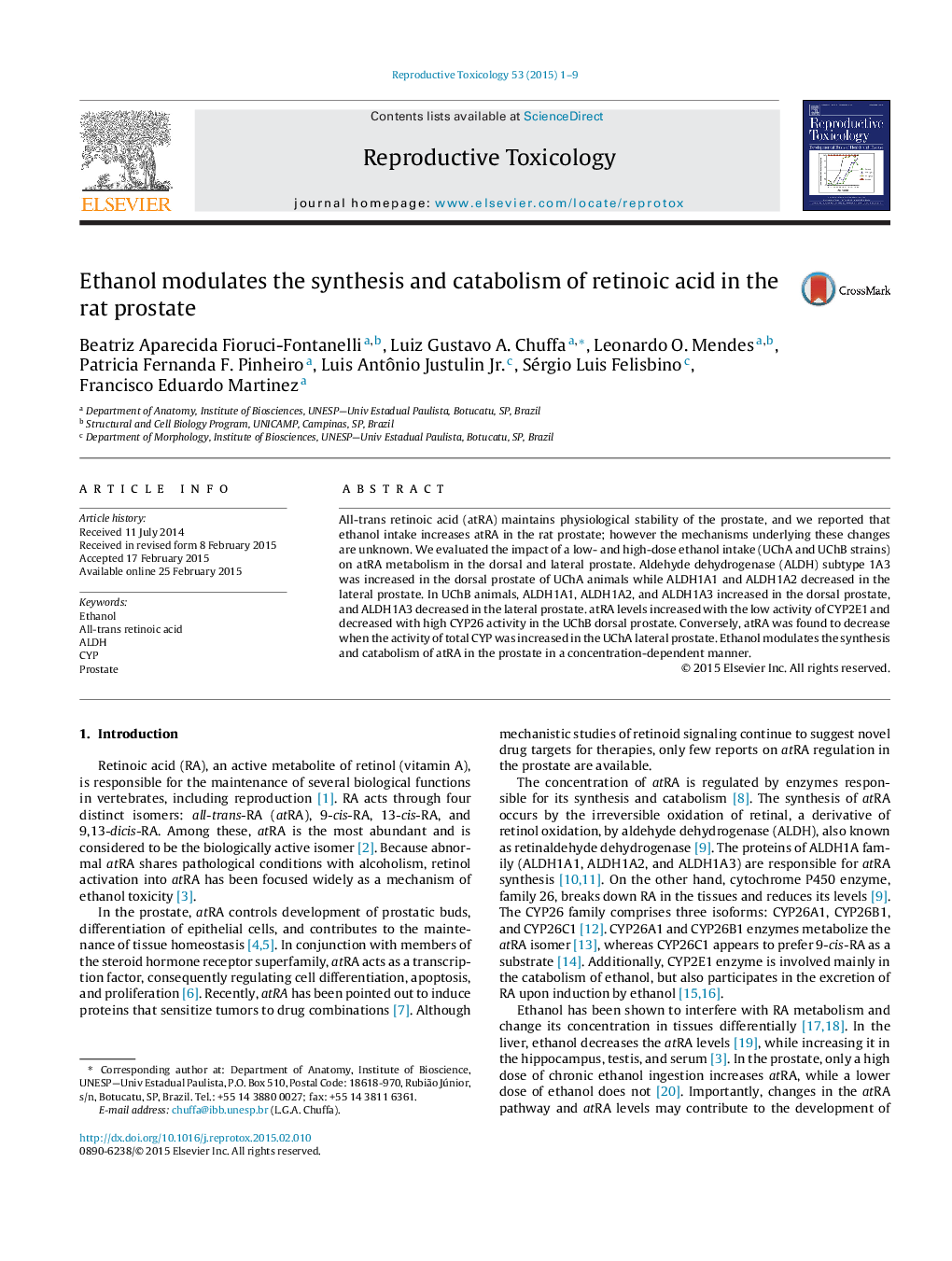| Article ID | Journal | Published Year | Pages | File Type |
|---|---|---|---|---|
| 2593462 | Reproductive Toxicology | 2015 | 9 Pages |
•Low-ethanol intake differentially modulate ALDH1A subtypes in the prostate lobes.•High-ethanol intake increased ALDH1A1, ALDH1A2, and ALDH1A3 levels in dorsal prostate.•High atRA levels are related to low CYP2E1 activity in dorsal prostate of UChB rats.•atRA was decreased with a high activity of CYP total in lateral prostate of UChA rats.•Ethanol alters atRA metabolism in the prostate in a concentration-dependent manner.
All-trans retinoic acid (atRA) maintains physiological stability of the prostate, and we reported that ethanol intake increases atRA in the rat prostate; however the mechanisms underlying these changes are unknown. We evaluated the impact of a low- and high-dose ethanol intake (UChA and UChB strains) on atRA metabolism in the dorsal and lateral prostate. Aldehyde dehydrogenase (ALDH) subtype 1A3 was increased in the dorsal prostate of UChA animals while ALDH1A1 and ALDH1A2 decreased in the lateral prostate. In UChB animals, ALDH1A1, ALDH1A2, and ALDH1A3 increased in the dorsal prostate, and ALDH1A3 decreased in the lateral prostate. atRA levels increased with the low activity of CYP2E1 and decreased with high CYP26 activity in the UChB dorsal prostate. Conversely, atRA was found to decrease when the activity of total CYP was increased in the UChA lateral prostate. Ethanol modulates the synthesis and catabolism of atRA in the prostate in a concentration-dependent manner.
